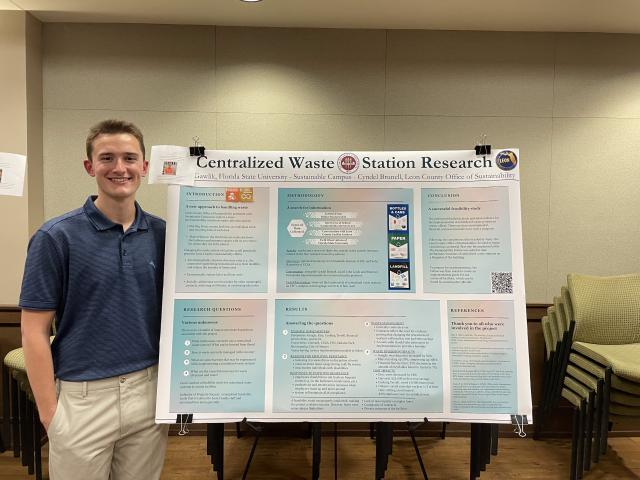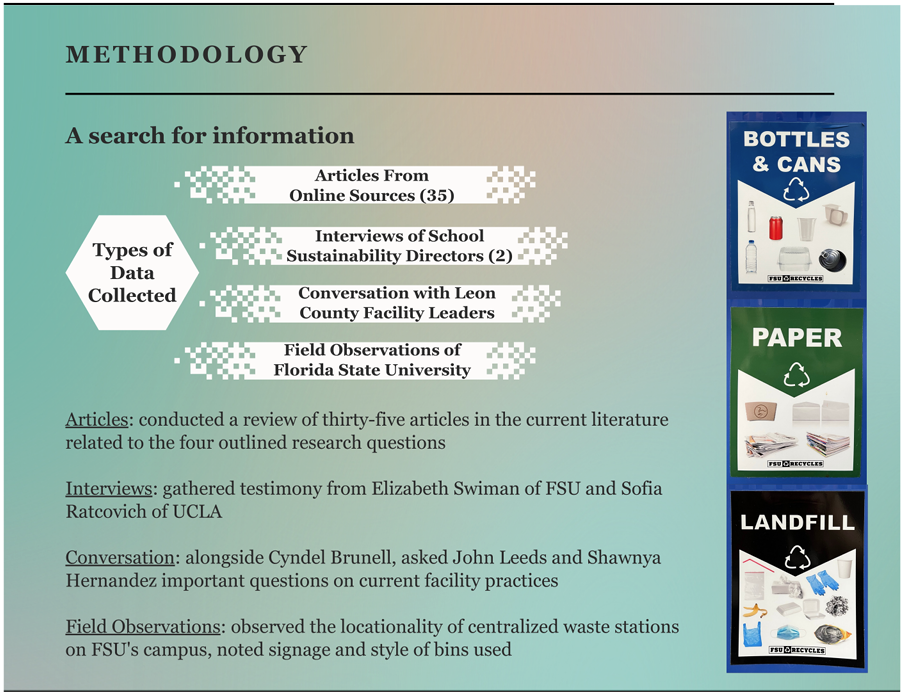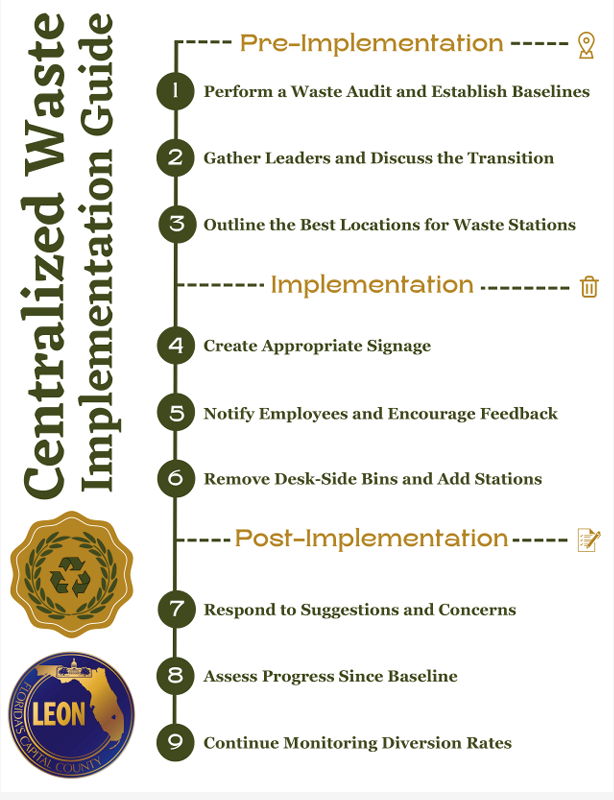Spring 2023 Sustainability Fellow: Kolby Gawlik

Partner: Leon County Office of Sustainability
Project: Centralized Waste Station Research
Students: Kolby Gawlik
Kolby Gawlik, a senior undergraduate in Environment and Society and Public Health, worked as a Sustainability Fellow in Spring 2023. With a passion for sustainability initiatives in urban landscapes, Kolby aims to make a lasting impact on waste management in Leon County. This project focuses on exploring the feasibility of implementing centralized waste stations in county facilities, a groundbreaking endeavor for the region.
Partnering with Leon County's Office of Sustainability, Kolby found a strong ally in their pursuit of a more sustainable waste management system. The importance of this partnership lies in Leon County's commitment to manage waste streams effectively and sustainably, striving to reduce recycling contamination and lower labor and operating costs.
"I truly enjoyed my experience as a Sustainability Fellow. I enjoyed being able to work individually and being given the opportunity to present that information to others. After presenting my research, it was very rewarding to see the project progress forward," shared Kolby.
Kolby's drive for sustainability initiatives stems from personal experiences growing up in the Chicagoland area, witnessing the detrimental effects of air pollution, waste disposal, and heat waves on urban environments. With a desire to channel his education into meaningful action, Kolby brings a unique perspective and determination to this project.
 Kolby's research involved analyzing various institutions that have successfully implemented centralized waste stations, particularly focusing on examples within higher education. He also worked closely with the facilities staff to gain insights into the current waste management practices within the county and identify potential barriers to adopting this new model. Key considerations included reducing recycling contamination, labor cost reduction, and overall operating cost efficiency.
Kolby's research involved analyzing various institutions that have successfully implemented centralized waste stations, particularly focusing on examples within higher education. He also worked closely with the facilities staff to gain insights into the current waste management practices within the county and identify potential barriers to adopting this new model. Key considerations included reducing recycling contamination, labor cost reduction, and overall operating cost efficiency.
The project's goal was to conduct a comprehensive feasibility study on centralized waste stations in county facilities. By leveraging online data, insights from other institutions, and knowledge from the county's own facilities staff, Kolby analyzed the pros, cons, and potential barriers to implementation. The primary audience for this study was the Leon County staff, who would be instrumental in executing any recommended changes.
Furthermore, Kolby's contributions extended beyond the feasibility study. He mapped preliminary locations of centralized waste stations on blueprints of the buildings and created an implementation guide to facilitate the adoption of this innovative waste management system across all facilities.
"I think my community partner, Cyndel Brunell, did a great job as a mentor to me. She largely let me do my own thing and then provided feedback and advice along the way. I felt this style helped me grow as an individual, all while achieving the goals of the county," expressed Kolby. 
Throughout the project, Kolby encountered challenges related to the potential implementation of centralized waste stations. Some concerns were documented about wasted time and disruptions to their work, while others worried about tissue usage during cold and flu seasons. Additionally, there were concerns regarding the potential burden on individuals with disabilities.
To address these challenges, Kolby proposed practical solutions. Encouraging employees to dispose of their trash during frequent routes, such as bathroom or break room visits, minimizes disruptions while maintaining productivity and attentiveness. Kolby also highlighted research indicating that employees' productivity and well-being can improve when they stand up and move around. Moreover, the proposed system would maintain ADA compliance, ensuring accessibility for individuals with disabilities.
The project holds immense importance for Leon County, both economically and environmentally. By transitioning to centralized waste stations, the county stands to save money on custodial costs. Moreover, research shows that recycling rates increase when such systems are implemented, leading to a significant reduction in waste sent to landfills.
Kolby's dedication and research efforts have paved the way for Leon County's potential revolution in waste management. The feasibility study, coupled with the implementation guide and preliminary mapping, has set the stage for a more sustainable future.
To learn more about the Sustainability Fellows program, visit sustainablecampus.fsu.edu/sustainability-fellows.
